Ho Chi Minh City Within 4 hours, the 17-month-old boy with hand, foot and mouth disease rapidly progressed to stage 4, with respiratory failure and required continuous blood filtration.
On June 8, Dr. Nguyen Minh Tien, Deputy Director of the City Children's Hospital, said that the child's condition worsened after three days of fever, treatment at a private clinic in Dong Thap did not improve, and he was transferred to Ho Chi Minh City on the fourth day of the illness. At this time, the child's pulse was over 200 times/minute, respiratory failure, pale skin rash, progressing very quickly, reaching level 4 after only 4 hours, with a high fever of 40-41 degrees due to a cytokine storm - a condition in which the immune system overreacts against the body.
The baby was intubated, put on a ventilator, and put on continuous blood filtration to eliminate the cytokine storm. After two days of treatment, the patient responded to initial resuscitation measures and was treated in isolation and closely monitored at the Intensive Care Unit.

A 17-month-old boy is being treated at the Intensive Care and Anti-Poison Department, City Children's Hospital. Photo: Provided by the hospital
The baby is one of four children with severe hand, foot and mouth disease who were saved by the hospital last week. PCR tests of rectal swabs were all positive for the EV71 virus. Among them, one child initially had only a small rash on his lips, causing his parents to be complacent, but it quickly became serious.
According to Dr. Tien, the characteristics of EV71 are that it spreads very quickly and progresses severely, with high fever. Children with hand, foot and mouth disease caused by EV71 can experience complications such as neurological, cardiovascular, pulmonary edema, shock, heart failure and rapid death.
EV71 enters the body and is usually localized in the cheek mucosa or intestinal mucosa in the ileum. After 24 hours, the virus reaches the surrounding lymph nodes, from here it enters the blood causing bacteremia in a short time. From bacteremia, the virus reaches the oral mucosa and skin. The incubation period usually lasts 3-7 days.
The disease begins with fever, followed by blisters appearing on the oral mucosa (gums, tongue, inside the cheeks), and a red rash on the hands and feet. In cases of EV71 infection, the disease progresses more complicatedly, when the virus damages the central nervous system, it leads to meningitis.
Type EV71 not only causes hand, foot and mouth disease but also has the ability to cause diseases in the central nervous system such as viral meningitis, and more rarely, severe forms such as encephalitis or polio-like paralysis.
The Ho Chi Minh City Center for Disease Control has recorded a rapid increase in the number of children with hand, foot and mouth disease in the city in recent weeks. The number of cases in early June was more than double that of the previous two weeks. The reappearance of the EV71 virus strain that causes severe illness has made the situation "really worrying". Children's hospitals are treating 20-25 inpatient cases of hand, foot and mouth disease (each hospital) per day, including many seriously ill patients. In previous months, on average, 5-6 children were hospitalized or there were no cases at all.
On the afternoon of June 6, the Ho Chi Minh City People's Committee issued an urgent document requesting units to prevent hand, foot and mouth disease, high-risk areas such as childcare centers, kindergartens, primary schools, residential areas, and boarding houses with many children. People are advised to clean their living environment, monitor symptoms of the disease and go to the hospital promptly, avoiding subjectivity. The Department of Health has developed scenarios for admission and treatment if the number of cases increases; ensuring medicine and human resources.
America and Italy
Source link


![[Photo] General Secretary To Lam attends the 8th Congress of the Central Public Security Party Committee](https://vphoto.vietnam.vn/thumb/1200x675/vietnam/resource/IMAGE/2025/10/4/79fadf490f674dc483794f2d955f6045)

![[Photo] Solemn opening of the 8th Congress of the Central Public Security Party Committee, term 2025-2030](https://vphoto.vietnam.vn/thumb/1200x675/vietnam/resource/IMAGE/2025/10/4/f3b00fb779f44979809441a4dac5c7df)
![[Photo] Bustling Mid-Autumn Festival at the Museum of Ethnology](https://vphoto.vietnam.vn/thumb/1200x675/vietnam/resource/IMAGE/2025/10/4/da8d5927734d4ca58e3eced14bc435a3)


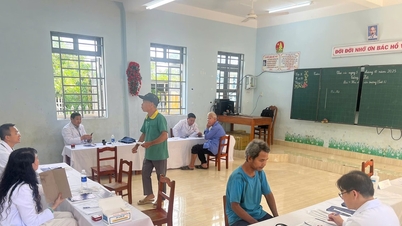

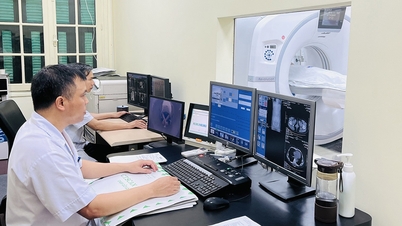

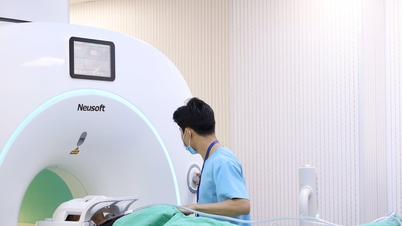









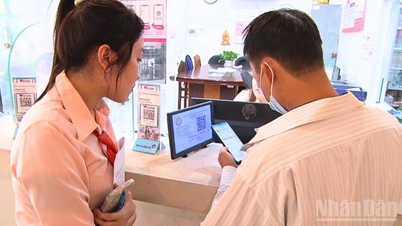








































![[VIDEO] Summary of Petrovietnam's 50th Anniversary Ceremony](https://vphoto.vietnam.vn/thumb/402x226/vietnam/resource/IMAGE/2025/10/4/abe133bdb8114793a16d4fe3e5bd0f12)
![[VIDEO] GENERAL SECRETARY TO LAM AWARDS PETROVIETNAM 8 GOLDEN WORDS: "PIONEER - EXCELLENT - SUSTAINABLE - GLOBAL"](https://vphoto.vietnam.vn/thumb/402x226/vietnam/resource/IMAGE/2025/7/23/c2fdb48863e846cfa9fb8e6ea9cf44e7)
















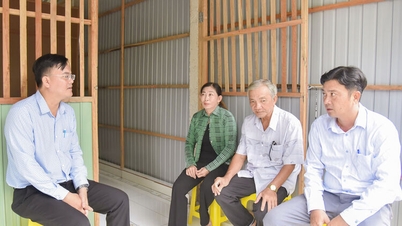







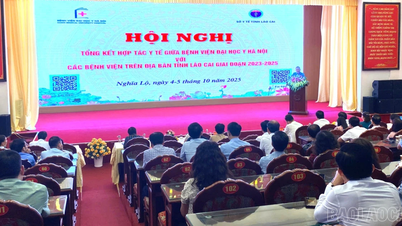





Comment (0)